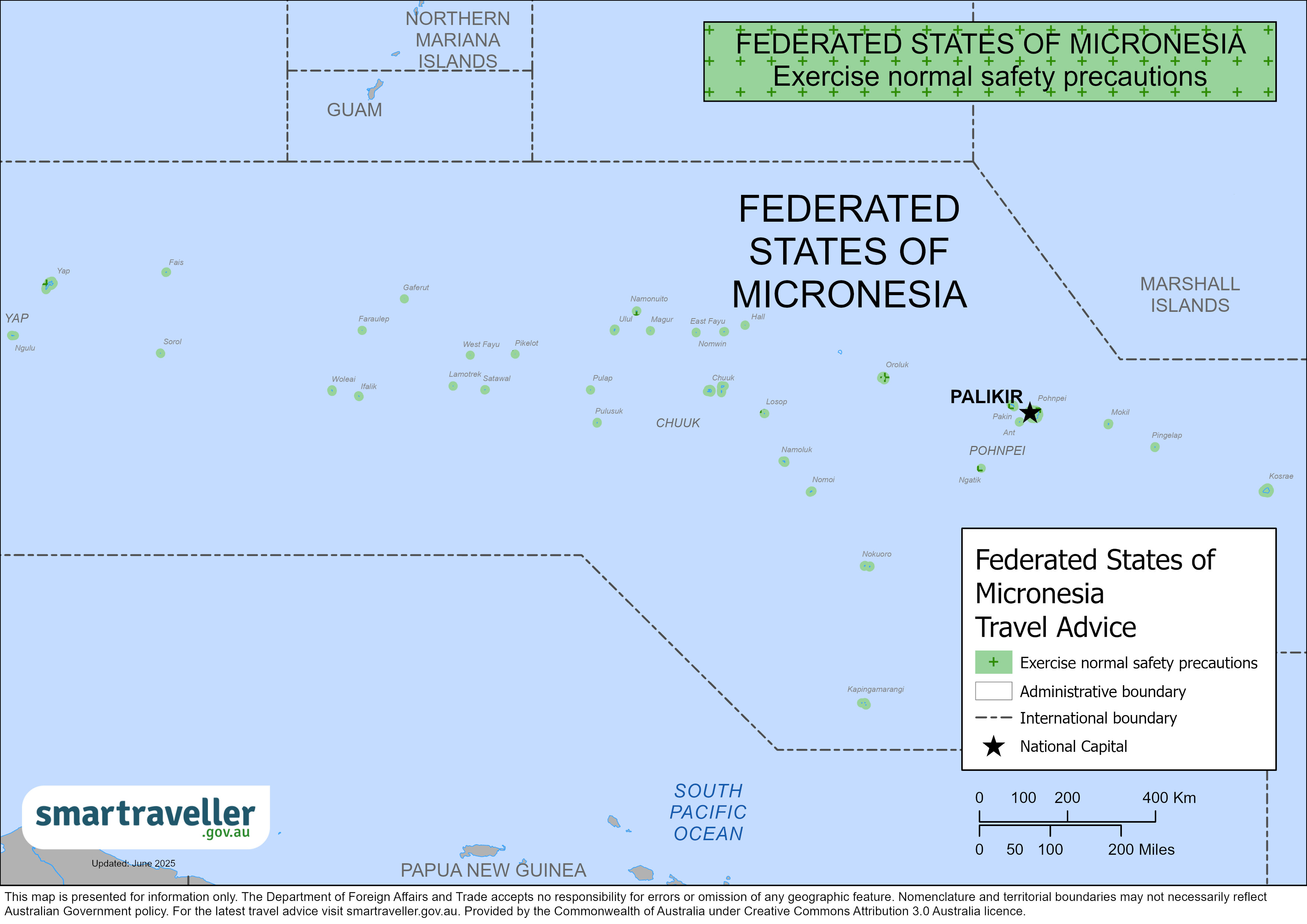Each country or territory decides its own entry and exit rules, including health border screening measures. To find out what you need to enter a destination, ask their embassy, consulate or immigration office.
Entry and exit conditions can change. More details on entry requirements can be found on the official Federated States of Micronesia Tourism website.
You can get a visitor visa on arrival. It's valid for tourism, work or study for 30 days. You'll need to show an onward or return ticket.
You'll need an entry permit to visit for more than 30 days.
Rules affecting your visit can change at short notice. Entry and exit conditions can change. Contact the Division of Immigration in Pohnpei for details about visas and entry permits, currency, and customs rules.
Division of Immigration in Pohnpei
Phone: (+691) 320 5844, (+691) 320 2605 or (+691) 320 2606
Email: passport@gov.fm
Travel via the United States
If you’re travelling through the US, you must also meet US entry or transit requirements. This includes transit through Hawaii and Guam.
Contact your nearest US embassy or consulate for details on US entry or transit requirements.
More information:
Border Measures
Entry and exit conditions can change at short notice.
Contact your travel provider for details and follow the Australian Embassy in the Federated States of Micronesia Australia in Micronesia for updates.
Check with your airline or tour operator to confirm you meet all entry requirements.
Departure
You must pay a cash departure fee in US dollars at domestic and international airports.
Carry cash with you. ATMs aren't available at most airports.
Each island has its own customs and immigration procedures.
More information:
Travelling with children
If you're travelling with a child who isn't your own, you must carry a letter of travel permission from the child's legal guardian.
For you to travel legally, your letter must:
- be certified
- state that you're allowed to travel with the child
Arriving by sea
All vessels must have an entry permit.
If you're on a private vessel or yacht, you must contact the Division of Immigration at least 72 hours before you arrive.
Division of Immigration
Phone: (+691) 320 5844, (+691) 320 2605 or (+691) 320 2606
Email: passport@gov.fm
More information:



